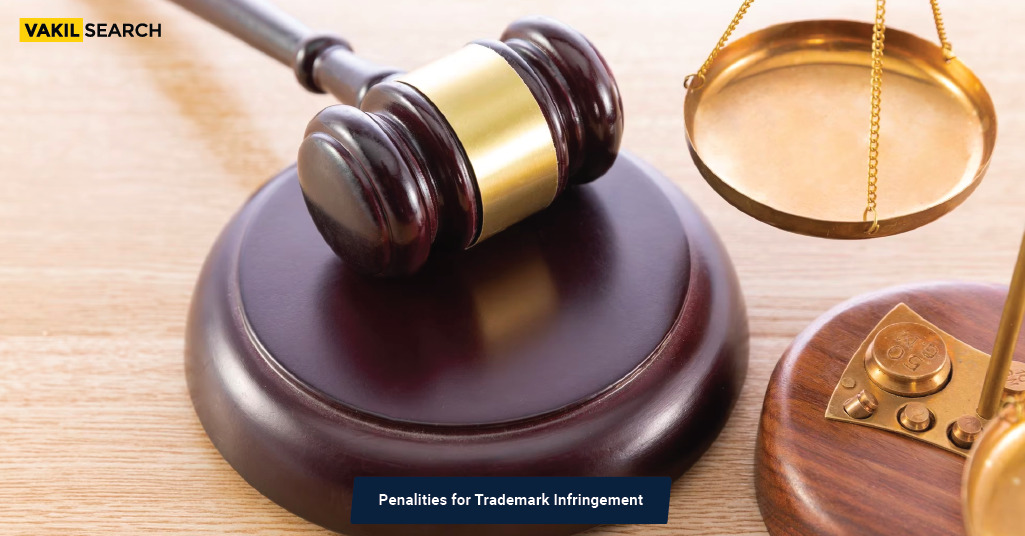If a trademark or service mark is used without the owner's consent, it is a serious legal offense known as trademark infringement. In India, consequences for trademark violation can range from civil to criminal to administrative to customs seizure. When facing penalties for trademark infringement, it is advisable to seek legal counsel.
If a trademark or service mark is used without the owner’s consent, it is a serious legal offence known as trademark infringement. The Trade Marks Act, of 1999, in India, defines a trademark as “a mark capable of being represented graphically and which is capable of distinguishing the goods or services of one person from those of others.”
The owner of the trademark may pursue legal action against someone who uses it without authorization. This essay will cover what constitutes trademark infringement, the consequences of doing so, and whether or not you need legal representation to deal with the infringement penalty.
What is Trademark Infringement?
When someone uses a trademark or service mark that is identical to or confusingly similar to another party’s mark, it is considered trademark infringement. The mark may be used on products or services, in advertisements, or on packaging, among other methods.
The use of the trademark must be likely to lead to consumer misunderstanding in order to be considered an infringement. In other words, infringement occurs when someone sees the infringing mark and associates it with the owner of the original trademark.
What Is the Penalty for Violating a Trademark?
Depending on the seriousness of the offence, several punishments may be imposed in India for trademark violations. In general, the following sanctions may be imposed:
Civil Action:
The trademark owner has the right to sue the offender in court on a civil basis. If the infringement is found guilty, they may be forced to pay compensation or cease using the brand.
Criminal Action:
The trademark owner also has the option of charging the infringer with a crime. The violator may get a fine and/or a prison sentence if found guilty.
Administrative Action:
The trademark holder also has the option of submitting a complaint to the Registrar of Trademarks. If successful, the Registrar may either revoke the infringing mark or forbid its use by the infringement.
Trademark Seizure by Customs:
Trademark owners have the option of asking customs officials to confiscate products that violate their trademarks.
Do I Need a Lawyer for Help with Infringement Penalties?
You must see a qualified attorney if you are being investigated for trademark infringement in India. A lawyer can explain the accusations against you and the potential repercussions of a conviction to you. They can also act as your advocate in court and assist you in developing your defense.
A lawyer can help trademark owners defend their legal rights to their trademarks. They can support trademark application, enforcement, and infringement difficulties.
Factors Affecting the Severity of Trademark Infringement Penalties:
The magnitude of the infringement, the extent of the losses incurred by the trademark owner, the intention of the infringer, and the frequency of the infringement can all affect how severe the penalties for trademark infringement are in India.
Generally speaking, if a trademark infringement was intentional, malicious, or resulted in serious harm to the trademark owner, the sanctions may be more severe. The severity of the penalties may also differ based on whether the violation was a one-time incident or a pattern of behavior.
The Importance of Seeking Legal Assistance for Trademark Infringement:
You must see a qualified attorney if you are being investigated for trademark infringement in India. A lawyer can explain the accusations against you and the potential repercussions of a conviction to you. They can also act as your advocate in court and aid in the development of your defense.
A lawyer can help trademark owners defend their legal rights to their trademarks. They can support trademark application, enforcement, and infringement difficulties.
Protecting Your Trademark Rights in India:
It is crucial to register your trademark with the Indian Trademark Office if you want to safeguard your trademark rights in India. By preventing others from utilising similar or identical trademarks, this might help prove your exclusive rights to use the trademark.
Additionally, it is crucial to keep an eye on any infringement of your trademark and take legal action if necessary. This may entail delivering cease-and-desist letters, bringing legal action for infringement, and requesting compensation or injunctions.
Overall, being vigilant and proactive are necessary to protect your trademark rights in India. You can protect your trademark and avoid paying infringement fines by taking the required precautions and getting legal counsel when necessary.
Conclusion
In India, violating trademarks is a significant offence that may result in severe penalties. To navigate the legal process and protect your rights if you are facing infringement charges, it is critical to enlist the help of a knowledgeable attorney. Remember that it is always better to prevent trademark infringement than to deal with its consequences, so take steps to safeguard your trademarks and avoid misusing others’ trademarks. If you want to know more about the ramifications of trademark infringement, reach out to our intellectual property specialists at Vakilsearch.
Also, Read:




